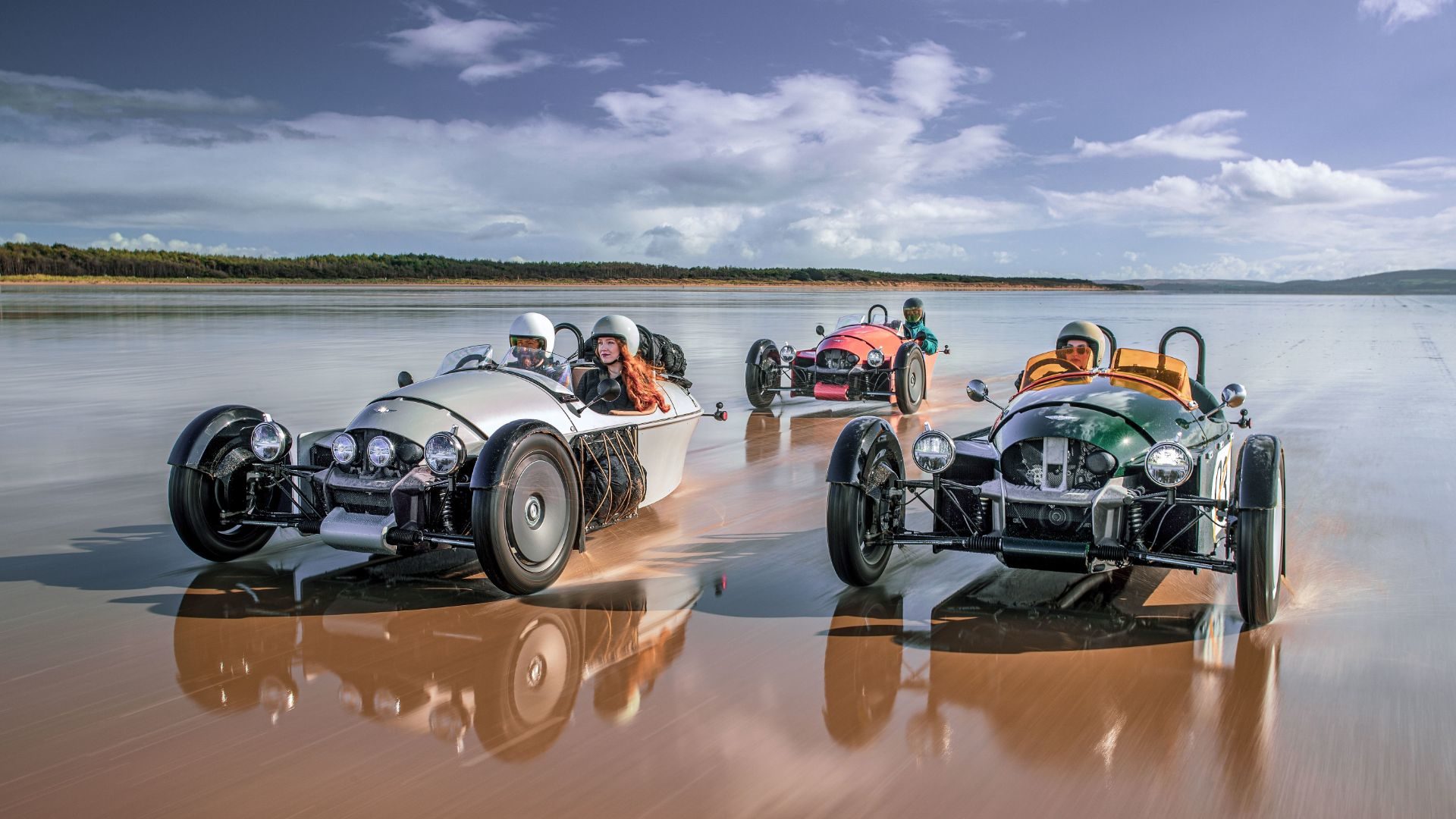
Morgan is back on three wheels. Meet the new Super 3: follow-up to the 3-Wheeler – and the British marque’s first clean-sheet design since the Aero 8 of 2000. Exciting, extroverted and eccentric, it’s billed as “the antidote to a daily-driver”.
Henry Frederick Stanley Morgan’s first car was a three-wheeler, built in 1909. His company stuck with the format for four decades before the 3-Wheeler made a comeback in 2011. The ‘Super’ name also has its roots in Morgan’s past, and nods to American popular culture of the 1950s and 1960s.
“It shifts Morgan’s three-wheeler design language from the biplane era to the jet age,” explains senior designer Harvey Fulford. We’re inside a closely guarded workshop at Bicester Heritage for an in-depth preview of the Super 3 before production starts in April. Here’s what you need to know.
Three wheels, three cylinders
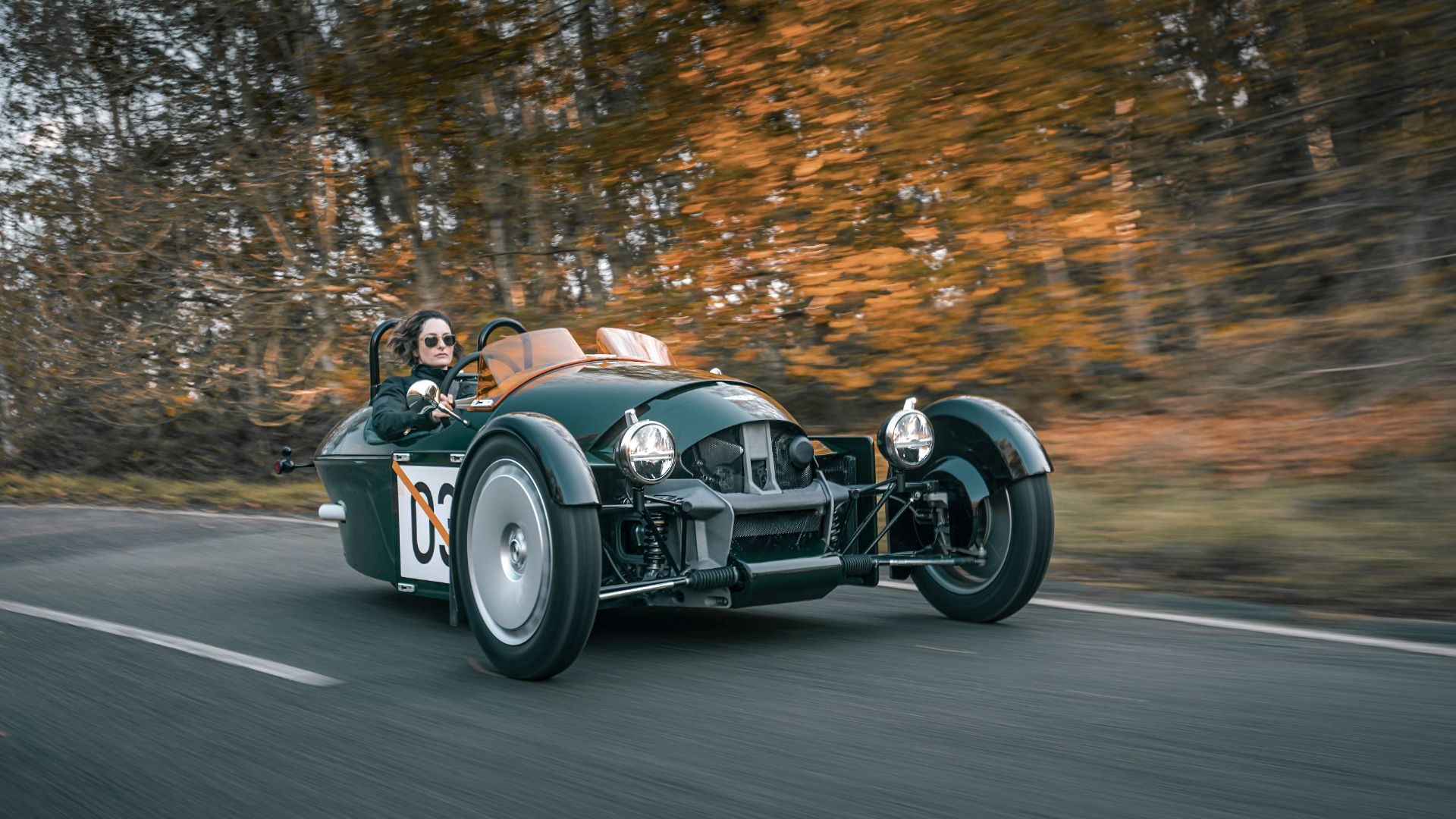
Unlike the outgoing 3-Wheeler and its motorcycle-sourced V-twin, the Super 3 uses a car engine. Its 1.5-litre three-cylinder Ford ‘Dragon’ motor drives the rear wheel via the snappy five-speed gearbox from a Mazda MX-5.
“We looked at using bike power again, but that would have meant a sequential gearbox – rather than a traditional manual,” explains Fulford. “We wanted the car to be as analogue as possible.” The Ford engine allows Morgan to meet Euro 5 emissions standards, too.
With 120hp and a modest 635kg to shift, the Super 3 reaches 62mph in 7.0 seconds and a (presumably quite blustery) top speed of 130mph. Morgan also promises plenty of smiles per mile, thanks to its expertise as a ‘global leader in the dynamic behaviour of three-wheeled vehicles’.
The Super 3 has been future-proofed to accept an electric powertrain, if customers or legislators demand it. In time, it could be Morgan’s first electric production car, following the stillborn EV3 concept of 2016.
Back to the future
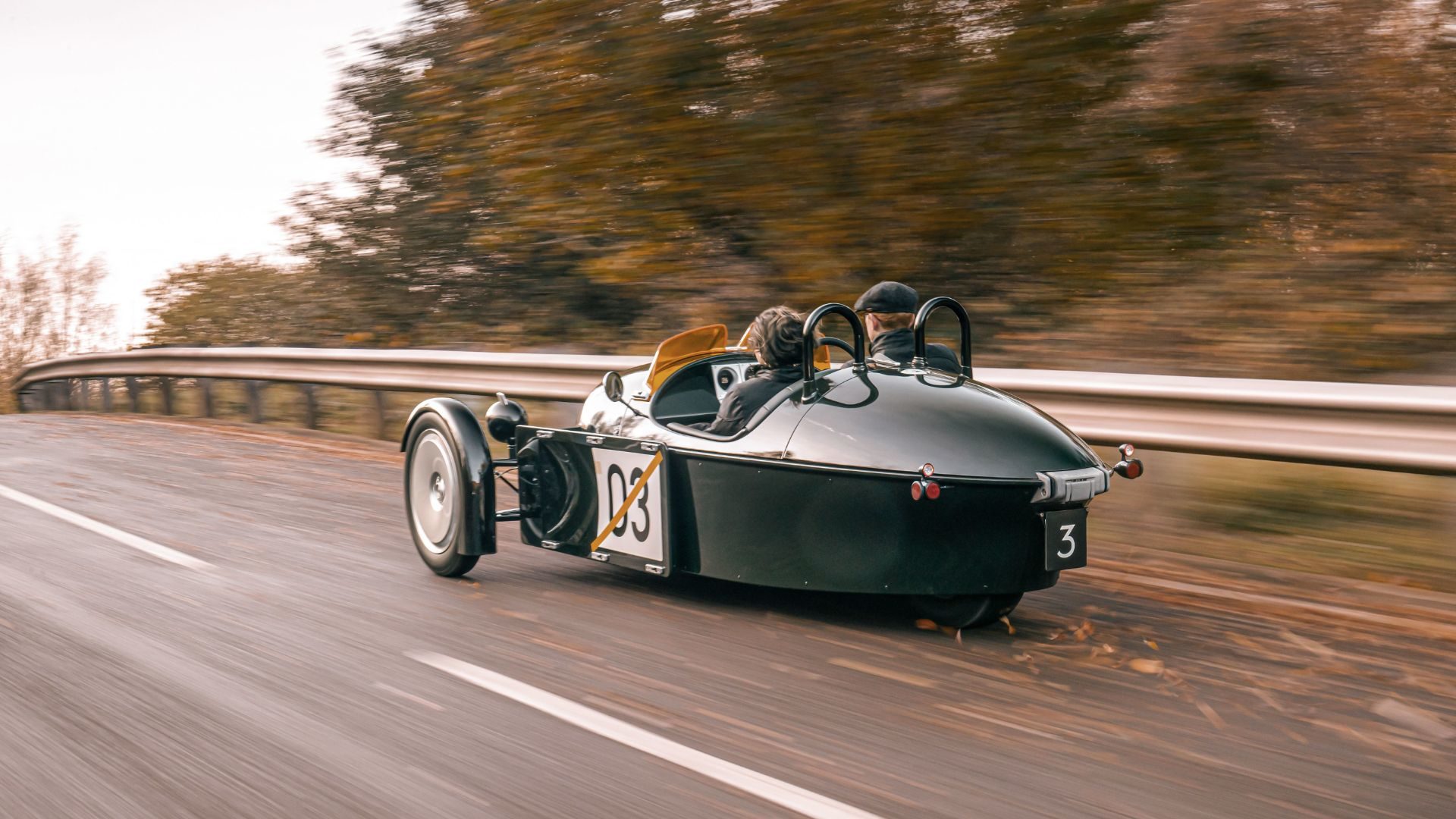
“Retro-futurism is an expression we use a lot,” says Fulford, walking me around two very different interpretations of the Super 3: one in trad British Racing Green, the other in eye-popping Coral Orange. “This car deliberately challenges the traditional concepts of Morgan design.”
Without a V-twin out front, the Super 3’s face is defined by bug-eyed headlights, pushrod suspension and a mesh grille that clearly reveals the engine within. Fulford points out how the cowl is level with the centre-line of the wheels, like a classic Bugatti. “It means the wheels are always leading.”
Upright sideblades are another striking design feature – and provide a mounting point for luggage panniers if needed. They can be painted in contrasting colours, too.
The aero screens, optionally tinted in yellow, offer some protection, although I’m told most 3-Wheeler drivers wear helmets. You can fit a (detachable) full-width windscreen for longer road-trips.
Morgan goes monocoque
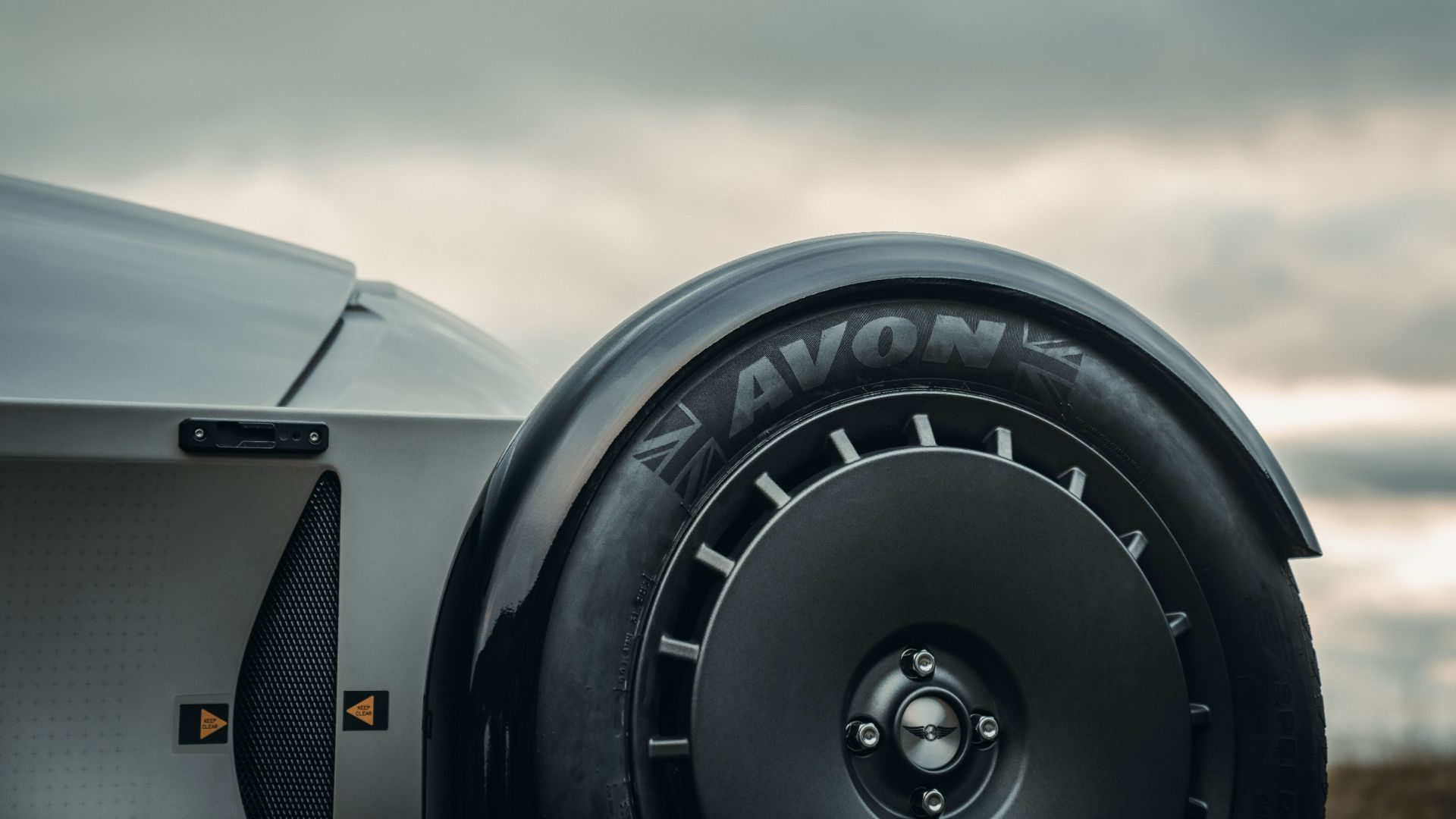
The Super 3 uses the first monocoque chassis in Morgan’s history. This ‘Superformed’ platform offers benefits in terms of rigidity, weight and packaging (yep, there’s even a small boot under the rear clamshell).
Fulford says the distinctive 21-inch alloy wheels are “somewhere between an 1980s rally car and a salt-flat racer”. They’re shod with retro-look Avon Speedmaster tyres that are unique to the Super 3.
You’ll also spot the front mudguards, which extend down to almost ground level. This is so, unlike in the 3-Wheeler, you don’t get a face-full of rainwater whenever you turn a corner…
Ready for British weather
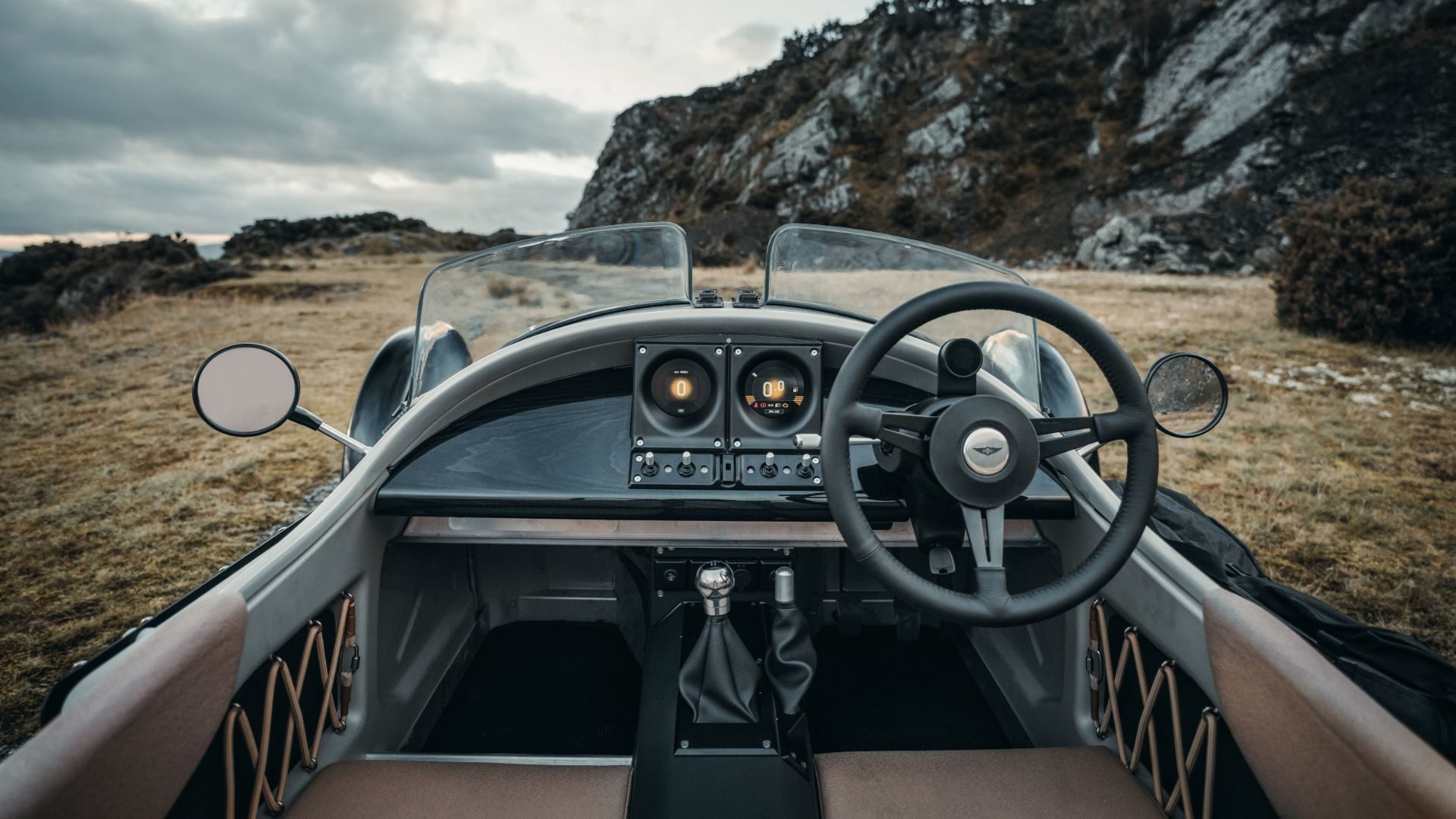
The Super 3’s cabin is rated at an ingress protection level of IP64. In English, this means it “can be hosed down inside”, with even the USB sockets protected against water damage. Recognising that many 3-Wheeler owners stand on the seat base to clamber aboard, the seats and armrests are also trimmed in “military-grade technical fabric” or hard-wearing leather. A storm cover that uses bungee cords to stretch over the whole car is supplied, with a fitted tonneau on the options list
This is the first Morgan with a cupholder, but it’s not all about mod-cons. “We wanted to design in quirks and things you have to learn. Those eccentricities are what make you fall in love with a car,” says Fulford. “The dashboard is a weird balance of different eras. The digital gauges have aluminium surrounds that look like they come from an old aircraft. And the joystick switches underneath are like something from a retro arcade game.”
The Super 3’s seats are fixed, but the pedal box slides and the steering wheel adjusts for tilt and reach. “My knees were around my ears in the old 3-Wheeler,” jokes the 6ft 4in designer. “This is so much more comfortable.”
Tailored and swift
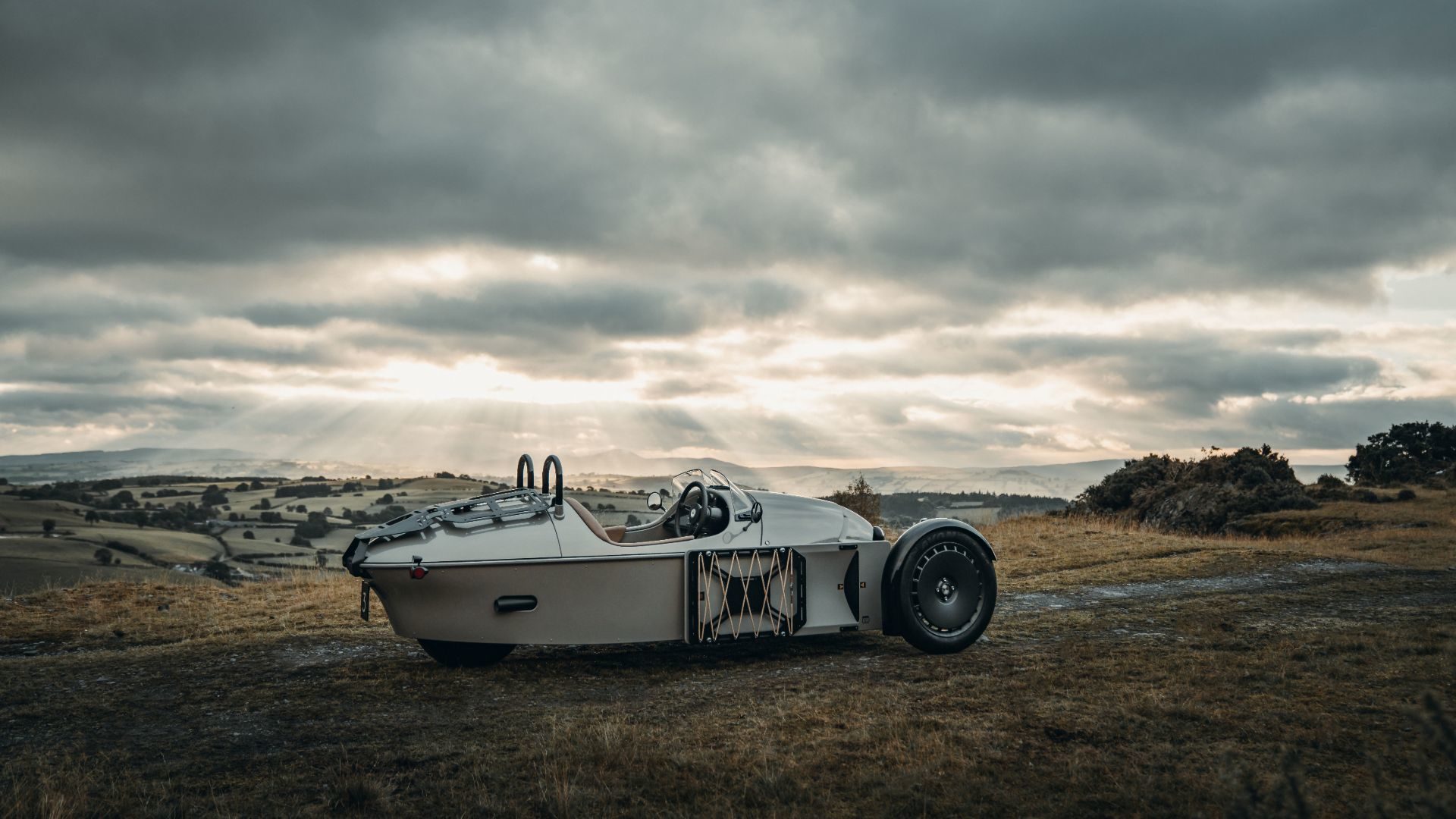
Morgan describes the Super 3 as its ‘most configurable car ever’, with an ‘almost endless combination of options and accessories’. Buyers are encouraged to visit the factory in Malvern, Worcestershire, to see their car being built.
One of the most interesting extras is the minimalist Beeline sat-nav, which clips on above the steering wheel and pairs to your smartphone. You can also specify a Quad Lock phone mount, heated seats, under-seat storage boxes and a luggage rack. Morgan has worked with Malle London on a range of bespoke bags and cases.
And if the Super 3 isn’t head-turning enough, there’s a range of graphics packages inspired by motorsport, aviation and more.
A Morgan adventure
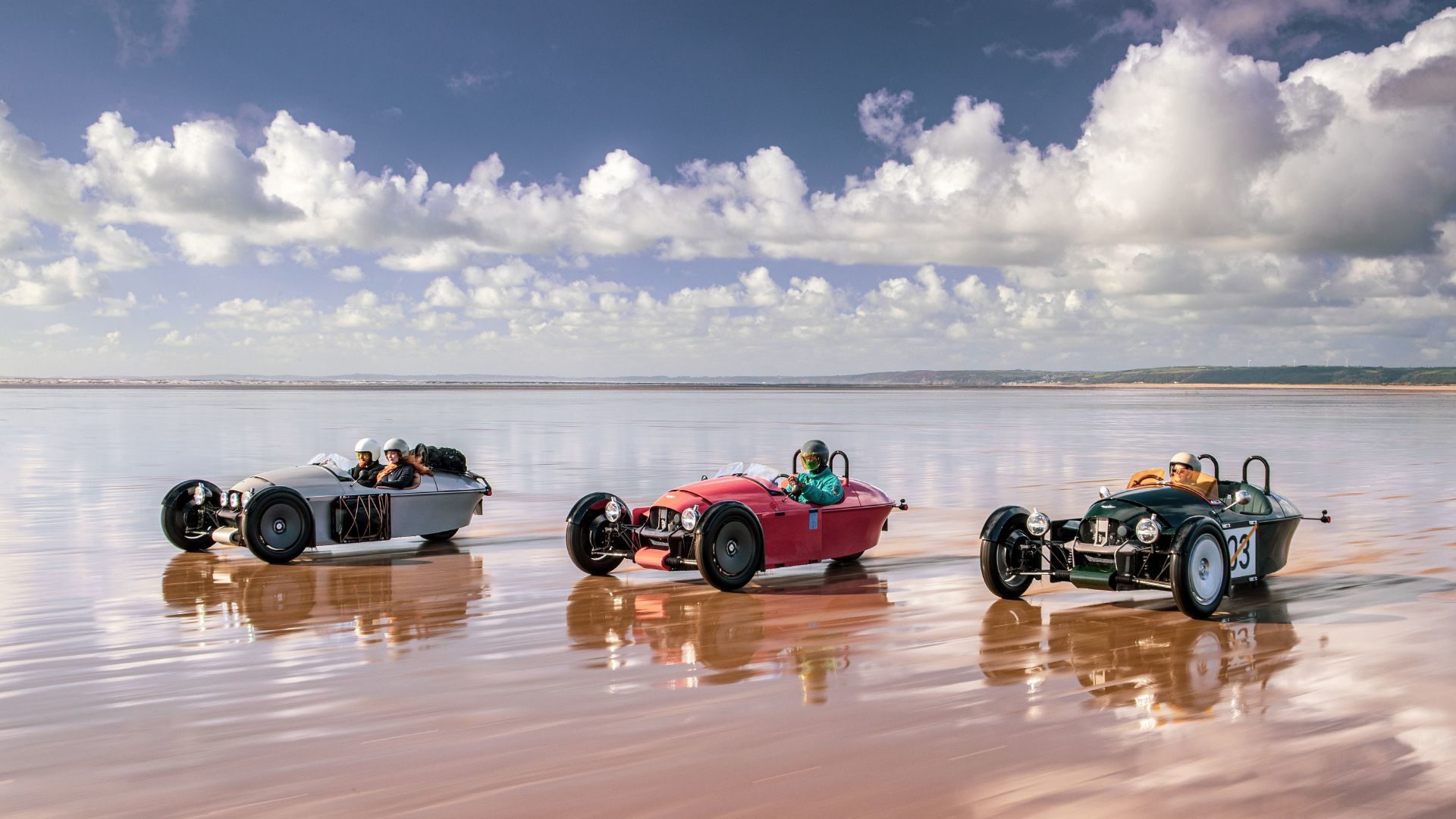
Morgan built around 800 cars in 2021 and will be “pushing towards 1,000 cars a year” once the Super 3 enters production. We’re also told the Super name could be applied to other cars as a new pillar in the Morgan range, alongside the existing Plus models.
Fulford says the company was constantly surprised by how far customers drove their 3-Wheelers: “People have crossed America, one guy drove around India, and several others did a tour of New Zealand.” The Super 3, he hopes, is ready for similar adventures. “Morgans aren’t garage queens, they’re designed to be used.”
We don’t anticipate crossing the USA, but we hope to drive the Super 3 later this spring. The configurator is now live and the car is available to order, priced from £41,995.
Price: £41,995
Engine: 3-cylinder, 1.5-litre petrol
Gearbox: 5-speed manual
Power: 120hp @ 6,500rpm
Torque: 110lb ft @ 4,500rpm
0-62mph: 7.0 seconds
Top speed: 130mph
Fuel economy: 40mpg
CO2 emissions: 130g/km
Weight: 635kg (dry)
ALSO READ: